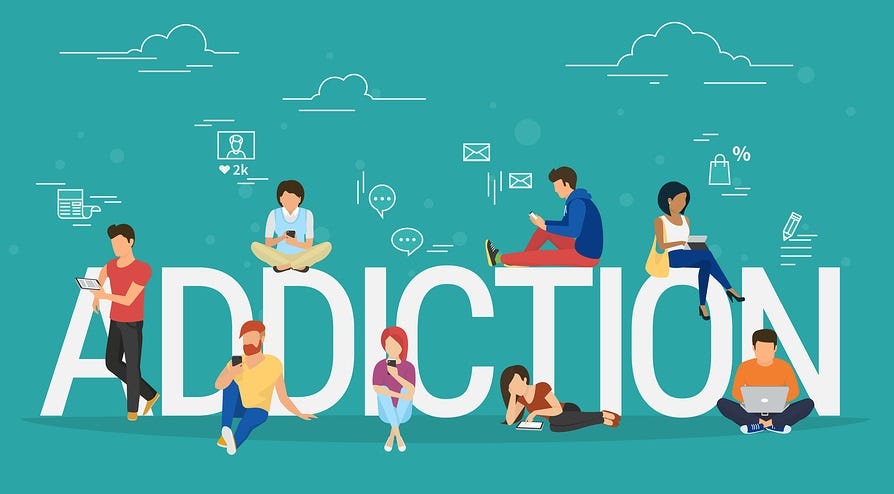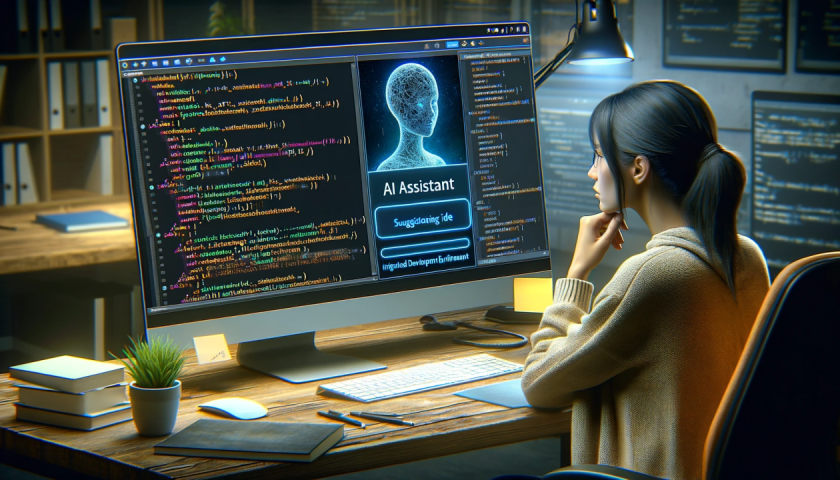Understanding the Impact of Social Media on Mental Health
By: Javid Amin
In the age of hyper-connectivity, where a dopamine hit is just a scroll away, social media has become an undeniable force shaping our lives. While it offers a window into the world, a platform to connect, and a canvas for self-expression, its hidden shadows can creep into our mental well-being, weaving a narrative of inadequacy, anxiety, and isolation. Today, we delve into the dark side of the scroll, exploring how social media, particularly the insidious act of doomscrolling, can subtly unravel our sense of self and happiness.
The FOMO Factory: Crushing Self-Esteem and Breeding Insecurity
Imagine a perfectly curated montage of lives: sculpted bodies lounging on pristine beaches, extravagant vacations, picture-perfect relationships—all bathed in the warm glow of filtered sunshine. This is the curated reality of social media, a highlight reel carefully crafted to portray a facade of success and happiness. Unfortunately, for many, especially those struggling with low self-esteem or body image issues, this becomes a toxic comparison trap.
Studies have shown how exposure to these carefully constructed online personas can significantly decrease body positivity, particularly among women. The constant bombardment of unrealistic beauty standards can lead to negative self-talk, dissatisfaction with one’s own appearance, and even trigger eating disorders. It’s a cruel irony—a space meant for connection can become a breeding ground for insecurity and self-loathing.
The Disconnect Paradox: Escaping to a Lonely Oasis
Ironically, a platform designed to bridge the gap between individuals can actually exacerbate loneliness. Studies have found that excessive social media use can lead to a decrease in real-world social interaction. It’s a seductive comfort bubble—the endless scroll becomes a substitute for face-to-face conversations, genuine hugs, and the messy beauty of real-life connections.
This virtual intimacy creates a false sense of connection, leaving us craving genuine human interaction in ways we might not even recognize. The disconnect between the curated online world and the lived experience fuels a sense of isolation, leaving us feeling like hollow spectators in our own lives.
The Dopamine Deluge: Rewiring Your Brain for Likes and Shares
Our brains are reward-seeking machines, hardwired to crave the pleasurable release of dopamine. Social media exploits this vulnerability with insidious precision. Every like, every comment, every retweet triggers a dopamine surge, a fleeting rush of validation that reinforces our engagement. Like a gambler chasing another jackpot, we keep scrolling, seeking the next hit, the next fleeting moment of social approval.
The brain, in its infinite plasticity, adapts to this dynamic. Gradually, the pathways for seeking social validation through online platforms get strengthened, while our capacity for genuine connection and introspection diminishes. We become addicted to the external validation, a slave to the algorithm designed to keep us scrolling.
The Attention Deficit Abyss: Shrinking Focus Spans and Mental Fatigue
Remember the days of devouring a long book, immersing yourself in a film without checking your phone for hours? In the age of the attention economy, those days feel like a distant memory. Social media, with its rapid-fire content and endless notifications, has fragmented our attention, turning us into digital butterflies flitting from one fleeting stimulus to the next.
This constant bombardment of information overwhelms our cognitive resources, leaving us mentally fatigued and unable to focus on deeper, more meaningful tasks. As our attention spans shrink, so does our ability to engage in critical thinking, introspection, and sustained learning. We become increasingly susceptible to misinformation and manipulation, as our ability to differentiate between fact and fiction weakens.
The Doomscroll Vortex: Feeding Anxiety and Fueling Depression
In a world rife with uncertainty and negativity, it’s natural to seek information and stay informed. However, social media, particularly during times of crisis or conflict, can morph into a vortex of negativity. We fall prey to the allure of doomscrolling, compulsively refreshing feeds, absorbing every bit of bad news, and getting sucked into a whirlpool of anxiety and despair.
This constant exposure to negativity takes a toll on our mental well-being. It fuels our pre-existing anxieties, triggers pessimistic thoughts, and can even lead to depression. In an echo chamber of negativity, the world can start to feel like a bleak and hopeless place, further chipping away at our sense of optimism and resilience.
Navigating the Labyrinth: Breaking Free from the Scroll
So, how do we navigate this labyrinth of digital seduction and reclaim our mental well-being? It’s a journey of awareness and action, a conscious effort to break free from the hypnotic pull of the screen and reassert control over our attention. Here are some steps we can take:
- Cultivate mindful awareness:
First, acknowledge your relationship with social media. How much time do you spend scrolling? How does it make you feel? Once you have a clear understanding of your usage patterns, you can start to set boundaries.
- Set mindful boundaries:
Once you’re aware of your habits, it’s time to set boundaries. Schedule specific times for checking social media and stick to them. Use app timers or website blockers to help you stay on track. Consider deleting social media apps from your phone altogether and only accessing them from a computer.
- Curate your feed:
Unfollow accounts that make you feel bad about yourself or trigger your anxiety. Follow accounts that inspire you, uplift you, and make you feel good. Choose to fill your feed with positive and informative content.
- Prioritize real-world connection:
Make time for face-to-face interaction with friends and family. Go for walks, have coffee dates, and engage in activities that connect you with your loved ones in the real world.
- Find healthy coping mechanisms:
When you’re feeling stressed or anxious, reach for healthy coping mechanisms instead of turning to social media. Exercise, meditation, spending time in nature, and journaling can all be helpful ways to manage difficult emotions.
- Challenge negative thoughts:
When you find yourself comparing yourself to others on social media, challenge those negative thoughts. Remind yourself that everyone is on their own journey and that social media is a curated highlight reel, not real life.
- Practice gratitude:
Take some time each day to appreciate the good things in your life. Write down what you’re grateful for, even if it’s just small things. Practicing gratitude can help shift your focus away from negativity and towards the positive aspects of your life.
- Seek professional help:
If you’re struggling to manage your social media use or if it’s impacting your mental health, don’t hesitate to seek professional help. A therapist can help you develop healthy coping mechanisms and strategies for dealing with the challenges of social media.
Remember, social media doesn’t have to be a toxic element in your life. By taking steps to become more mindful of your usage and setting healthy boundaries, you can reclaim control over your attention and protect your mental well-being.
It’s important to remember that social media is a tool, and like any tool, it can be used for good or for bad. The choice is up to us. By using social media in a mindful and conscious way, we can reap the benefits of connection and information while protecting ourselves from the potential harms.






